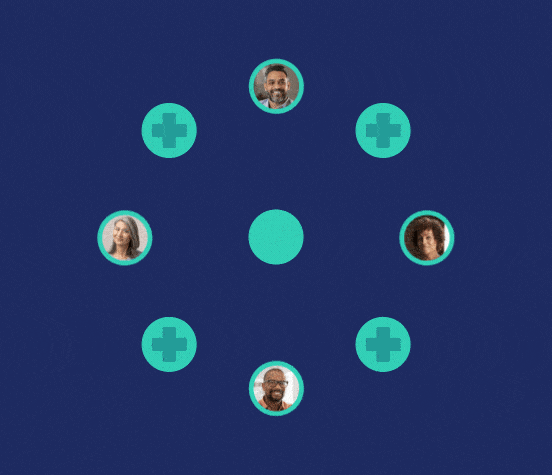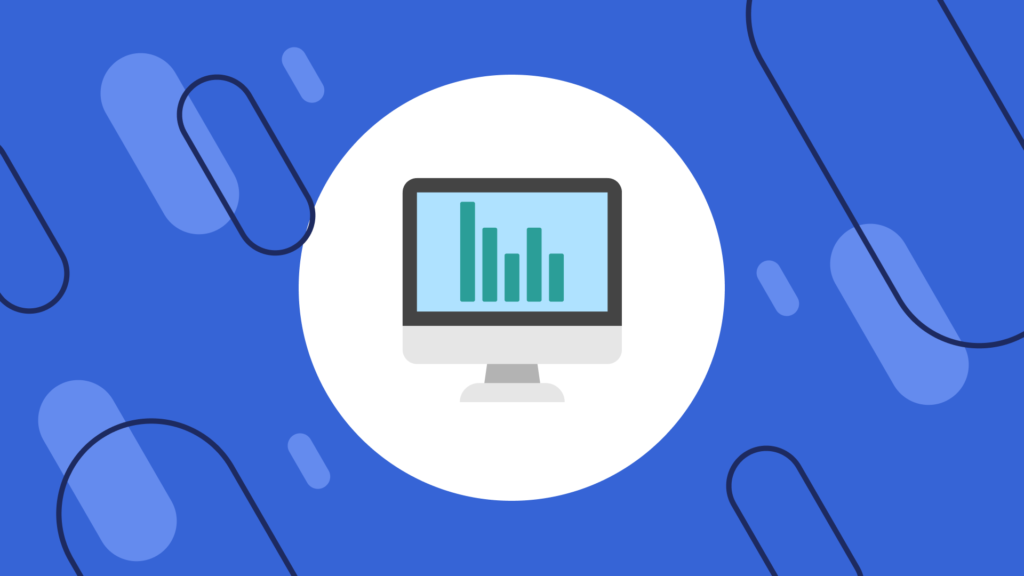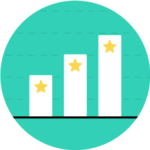Healthcare is changing and the stakes are higher.
Yield the best results with healthcare-focused training data by leveraging AI and machine learning models to identify specified criteria in conversational data that you want to monitor and act on.
Learn more about Smart Predict™
Improve your call metrics and their quality of care by blending regulations with human connection. Get answers about your script strategy.

Increase monitoring and reduce compliance observations
Centralize and streamline compliance monitoring to flag high-risk events, escalate critical errors, and get context around driving risk factors.
See Authenticx in ActionPredictive Analytics In Health Insurance
Predictive analytics in health insurance is a powerful strategy that leverages data and advanced algorithms to identify patterns and trends in the healthcare industry, enabling more informed decision-making. It involves analyzing vast amounts of structured and unstructured data to forecast health outcomes and assess risks. The growing prominence of predictive analytics in healthcare is capable of transforming the way insurance companies operate, leading to improved healthcare outcomes and more efficient cost management.
The healthcare predictive analytics market has witnessed significant growth in recent years, driven by interrelated factors such as the increasing availability of data, advancements in technology, and a greater need than ever for data-driven decision-making. There are a wide range of use cases for predictive analytics in healthcare and health insurance, including:
- Population health management
- Risk stratification
- Fraud detection
- Personalized medicine
- And more!
One notable use case for predictive analytics in healthcare is population health management, where predictive analytics enables healthcare providers and insurers to proactively identify individuals at risk for certain health conditions. By identifying high-risk patients, interventions can be implemented earlier, leading to better management of chronic diseases and reduced healthcare costs.
Risk stratification is another area where predictive analytics plays a crucial role. Insurers can assess the likelihood of certain events based on historical data and patient characteristics. This allows insurers to allocate resources more effectively, target interventions, and tailor care plans to individual patients — ultimately improving outcomes and reducing costs.
In the realm of fraud detection, predictive analytics helps identify patterns of fraudulent activities, such as billing discrepancies or suspicious claims. By analyzing large datasets and detecting anomalies, insurers can mitigate financial losses and protect the integrity of the healthcare system.
A predictive analytics in healthcare case study can demonstrate the significance of predictive analytics in healthcare. Examples include analyzing a combination of patient data, such as demographic information, medical history, and clinical indicators, to develop machine learning models to identify patients at high risk. This can allow healthcare providers to intervene earlier and implement the appropriate preventive measures.
Predictive analytics in health insurance is capable of revolutionizing the healthcare landscape. By leveraging data-driven insights, health insurance companies and healthcare providers can improve healthcare outcomes and manage costs more effectively. As the healthcare industry continues to embrace data-driven approaches, predictive analytics could play an increasingly pivotal role in shaping the future of health insurance and healthcare delivery and administration.
Types of Predictive Analytics
In the context of healthcare and health insurance, predictive analytics refers to the use of advanced techniques to analyze healthcare data and predict future events or outcomes. This strategy falls under the broader umbrella of healthcare data analytics, which encompasses various data-driven approaches to extract insights and drive decision-making in the healthcare industry.
Predictive analytics in healthcare typically involves analyzing large volumes of data, such as:
- Electronic health records
- Medical claims data
- Patient demographics
- Clinical variables
By applying statistical algorithms and artificial intelligence techniques to this data, predictive analytics aims to uncover patterns, trends, and correlations that can guide strategic planning.
In the health insurance industry, predictive analytics helps insurers assess and manage risk. By analyzing historical data, including medical claims, provider data, and patient demographics, predictive analytics models can identify patterns that indicate potential risks and predict future events. Insurers can use these insights to develop risk stratification models and allocate resources effectively.
However, predictive analytics in healthcare extends beyond insurance. For instance, it can be used in population health management to identify individuals at risk for certain diseases or complications. It can also support clinical decision-making by helping healthcare providers to predict patient outcomes.
Business analytics in healthcare encompasses a broad range of analytical techniques. Other techniques may focus on understanding historical and current data to gain insights and uncover patterns. Predictive analytics, on the other hand, goes a step further by leveraging historical data to make predictions about future events or outcomes.
Predictive analytics in healthcare and health insurance utilizes advanced analytical techniques to analyze large quantities of healthcare data. Predictive analytics is a subset of healthcare data analytics and can be applied in various domains, including risk assessment, population health management, and clinical decision-making. By harnessing the power of predictive analytics, healthcare organizations, and insurers can make data-driven decisions and improve outcomes overall.
Application of Predictive Analytics
Data analytics plays a crucial role in healthcare by enabling data-driven insights and more informed decision-making. One example is the use of predictive analytics to identify patients at high risk of developing certain diseases. By analyzing data such as medical history, genetic information, lifestyle factors, and demographic data, healthcare providers can develop predictive models to identify individuals who may benefit from early interventions.
Another notable example is the use of predictive analytics to forecast patient readmissions. By analyzing a combination of patient data — including demographics, medical history, and clinical indicators — healthcare organizations can develop models to identify patients at high risk of readmission. This allows for targeted interventions and better care transitions to prevent unnecessary readmissions.
Furthermore, examples of prescriptive analytics in healthcare go beyond predicting future outcomes and suggest actions to optimize results. One example is the use of prescriptive analytics to optimize hospital bed allocation. By analyzing resource availability and demand patterns, prescriptive models can recommend bed assignments and resource utilization to create a more efficient patient flow.
Descriptive analytics in healthcare examples focus on summarizing and understanding historical data to gain insights. An example of descriptive analytics is the analysis of electronic health records (EHR) to identify trends and patterns in patient populations. This can help identify disease prevalence and inform public health initiatives.
Data analytics in healthcare operations is also utilized to improve efficiency and resource allocation. For example, analyzing staffing patterns and wait times can help optimize scheduling and enhance patient satisfaction.
These examples demonstrate the wide range of applications of data analytics in healthcare, from predicting outcomes and optimizing operations to enhancing population health management. By leveraging data-driven insights, healthcare organizations can improve patient outcomes and deliver more personalized and efficient care.
How It Works
Gain a deeper level understanding of contact center conversations with AI solutions.
Learn MoreAggregate
Pull customer interaction data across vendors, products, and services into a single source of truth.
Analyze
Collect quantitative and qualitative information to understand patterns and uncover opportunities.

Activate
Confidently take action with insights that close the gap between your organization and your customers.
Predictive Analytics Examples
Companies specializing in healthcare predictive analytics play a crucial role in shaping the healthcare industry through their expertise in advanced analytics techniques. There are several top healthcare analytics companies in the US that lead the way in this domain. These companies offer cutting-edge solutions and comprehensive platforms to facilitate data-driven decision-making.
Predictive analytics healthcare companies focus specifically on predictive modeling and forecasting outcomes for the healthcare industry. They typically utilize sophisticated algorithms and statistical techniques to identify patterns, trends, and risks in healthcare data. By doing so, they enable healthcare organizations to make informed decisions and improve patient care in general.
Healthcare analytics software companies provide user-friendly platforms and tools that empower healthcare organizations to effectively analyze and visualize their data. These platforms often integrate with existing systems to enable seamless data analytics and reporting.
Healthcare predictive analytics companies specialize in predictive modeling solutions tailored specifically for the healthcare industry. These companies focus on developing algorithms and models to help identify high-risk patients, support personalized medicine approaches, and much more.
The expertise and specialized technologies of the top healthcare analytics companies in the USA enable healthcare organizations to harness vast amounts of data and turn them into actionable insights. By leveraging predictive analytics, healthcare organizations can enhance patient outcomes, improve operational efficiency, and drive innovation in the delivery of care.
Importance of Predictive Analytics
Utilizing predictive analytics in health insurance offers numerous benefits. Many of these advantages are widely recognized and supported by research papers on predictive analytics in healthcare and data science in healthcare. Some key benefits include:
Improved risk assessment
Predictive analytics enables health insurance providers to assess the likelihood of specific events, such as hospital readmissions or high-cost procedures. By analyzing historical data and patient characteristics, predictive models can identify high-risk individuals and enable targeted interventions, leading to better risk assessment and management.
Fraud detection and prevention
Predictive analytics can also help in identifying patterns and anomalies that may indicate fraudulent activities in health insurance claims. By using predictive analytics tools to analyze large datasets and detect suspicious behaviors, insurers can mitigate financial losses and protect the integrity of their systems.
Cost containment and resource optimization
Predictive analytics is also helpful for identifying cost drivers and helps insurers focus on cost containment strategies. By understanding utilization patterns, predicting healthcare needs, and optimizing resource allocation, insurers can improve operational efficiency and reduce unnecessary costs.
Personalized interventions
Predictive analytics also enables insurers to deliver personalized interventions and create tailored care plans based on individual patient characteristics. By understanding unique needs and risks, insurers can facilitate improved health outcomes and patient satisfaction.
Population health management
Predictive analytics helps identify population health needs and design targeted interventions. This can lead to improved preventive care and more informed public health initiatives.
These benefits of predictive healthcare are supported by various healthcare use case examples. Different types of healthcare analytics have many additional benefits to offer. Ultimately, predictive analytics in health insurance empowers insurers to make data-driven decisions and improve risk management, as well as deliver more personalized care to their insured members.